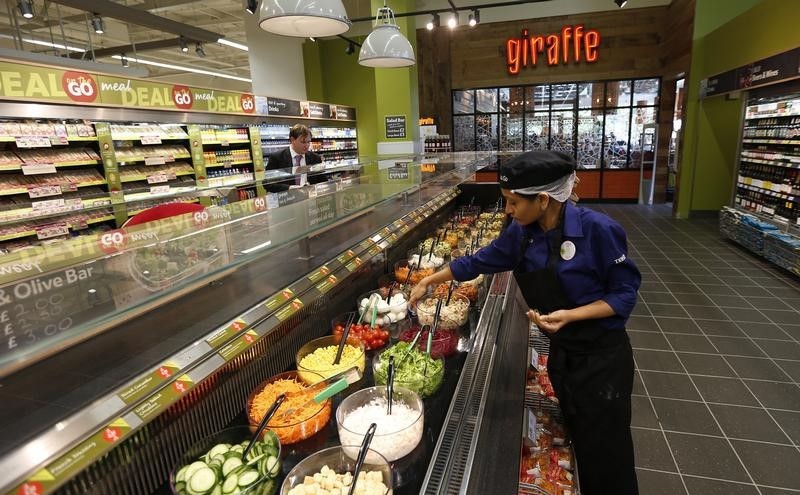By Andy Bruce and David Milliken
LONDON (Reuters) - Brit (LONDON:BRIT.L)ain's economic recovery softened further as growth across services companies slowed sharply during December to its lowest level since mid-2013, a survey showed on Tuesday.
Sterling slipped to a 17-month low against the dollar after the Markit/CIPS UK Services Purchasing Managers' Index (PMI), a closely-watched monthly survey, suffered its steepest decline in more than three years.
It showed growth in new orders and employment slowed across the businesses that make up the bulk of Britain's private sector economy.
While Britain's economy still looks set to outpace its euro zone peers this year, recent data have increasingly pointed to slower growth in the months ahead.
A separate survey on Tuesday from the Bank of England showed lenders predicting no significant increase in corporate loans in the next few months, largely due to their economic outlook deteriorating at the fastest rate since the end of 2008.
The weak services number follows similarly poor results from the manufacturing and construction sectors, and Markit said the data suggested British economic growth had fallen to 0.5 percent in the last three months of 2014 from 0.7 percent in the three months to September.
"The loss of momentum towards the year end will no doubt fuel worries that the upturn is too fragile to withstand higher inte#rest rates," said Chris Williamson, Markit's chief economist.
Other economists were more upbeat about prospects for Britain's recovery.
"While the UK economic engine has lost some steam, it is hardly coming to a standstill," said Rob Wood, economist at Berenberg.
The services PMI fell in December to 55.8 from 58.6 in November, its lowest level since May 2013 and below all forecasts in a Reuters poll.
The BoE announces its January monetary policy decision on Thursday. Most economists expect rates to stay on hold deep into this year while Britain maintains a steady pace of economic growth, if not quite reaching the heights of early 2014.
But four months before a national election, the latest batch of business surveys may perturb finance minister George Osborne's Conservative Party.
Hopes that Britain's economic recovery will become less reliant on big-spending consumers ebbed last Friday when data showed growth in the manufacturing sector weakened at the end of last year and lending to individuals soared.
Tuesday's BoE survey showed British banks expect to rein back growth in the supply of lending to households.
The central bank's quarterly Credit Conditions Survey also showed lenders reported the sharpest fall in household demand for mortgages since the third quarter of 2008.
 Tesco (LONDON:TSCO) employee prepares the salad bar outside the Giraffe restaurant at a Tesco Extra supermarket in Watford, north of London" alt="© Reuters. A Tesco employee prepares the salad bar outside the Giraffe restaurant at a Tesco Extra supermarket in Watford, north of London" rel="external-image">
Tesco (LONDON:TSCO) employee prepares the salad bar outside the Giraffe restaurant at a Tesco Extra supermarket in Watford, north of London" alt="© Reuters. A Tesco employee prepares the salad bar outside the Giraffe restaurant at a Tesco Extra supermarket in Watford, north of London" rel="external-image">
But at the same time, there was the biggest increase in demand for credit card lending since records began in early 2007.
(editing by John Stonestreet)